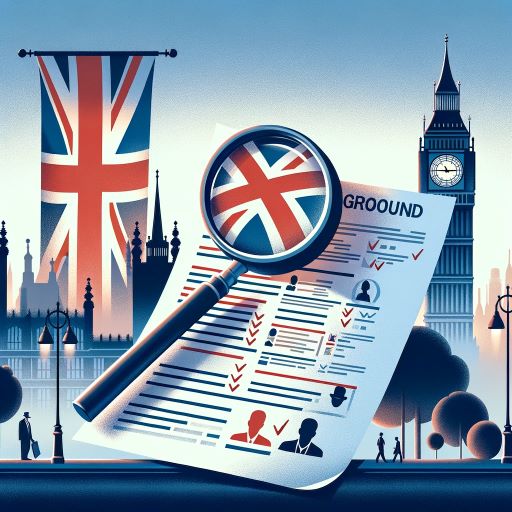

• Rigorous financial probity checks to assess financial stability and trustworthiness.
• Meticulous criminal records screening to identify any potential risks.
• Global watchlist checks to flag individuals involved in illicit activities internationally.
By following these best practices, employers can maintain a high level of security and integrity within their organizations, reducing the risk of theft, data breaches, and other security incidents. Additionally, ensuring the retention of data for 7 years postemployment is essential for demonstrating compliance with industry standards and safeguarding public safety.
Describing the twostage screening process in BS7858 provides insight into how candidates can start work while comprehensive screening procedures are in progress. This process allows for a smooth shift into employment while ensuring security standards are met.
Here are three key points to understand about the twostage screening process:
In the UK, the duration of pre-employment screening checks can vary significantly depending on the type and depth of the checks being conducted, as well as the industry and specific job role requirements. Generally, basic checks, such as identity verification and employment history, can be completed within a few days to a week. More comprehensive checks, including criminal record checks (DBS checks), credit history, and higher-level security clearances, may take longer.
An employee background check can encompass a wide range of verifications and screenings to assess a candidate's history and suitability for a position. The specific elements included in a background check may vary depending on the job, the industry, and the employer's requirements. Common components of an employee background check include:
Identity Verification: Confirms the candidate's identity through government-issued documents like passports or driver's licenses.
Employment History Verification: Checks the candidate's previous employment, including positions held, dates of employment, reasons for leaving, and rehire eligibility.
Education Verification: Confirms the candidate's educational degrees, diplomas, and certificates from colleges, universities, and other educational institutions.
Criminal Record Check: Searches for any criminal convictions, cautions, reprimands, or warnings. In some countries, this is known as a Disclosure and Barring Service (DBS) check in the UK or a criminal background check in the US.
Credit History Check: Reviews the candidate's credit history, which can be relevant for positions involving financial responsibilities. This check typically includes looking at credit scores, outstanding debts, bankruptcies, and financial mismanagement.
Reference Checks: Involves contacting previous employers, colleagues, or academic references to gain insights into the candidate's work ethic, abilities, and behavior.
• Candidates can begin work conditionally during the initial screening phase.
• Employers can stay informed of screening results as they become available.
• The process aims to balance efficiency and thoroughness in screening potential employees.

For the most reliable and secure background screening services under BS7858, selecting an accredited provider is essential. Accredited providers adhere to strict standards established by the Security Industry Authority (SIA), ensuring compliance with industry regulations and best practices. These providers undergo regular audits to maintain certification and uphold high screening standards, offering trustworthy services for secure environments. By choosing an accredited provider, you enhance security measures and promote a safe working environment.
Working with such providers not only meets the requirements of BS7858 but also instills confidence in the thoroughness and accuracy of the screening process. When vetting potential providers, look for their accreditation status and verify that they meet the necessary criteria to deliver excellent background screening services. Opting for an accredited provider for BS7858 guarantees a robust screening process, giving you peace of mind regarding the reliability and integrity of the background checks conducted.
What Is the British Standard Bs7858? BS7858 is an essential security screening standard in the UK, focusing on vetting individuals for roles where data and asset protection is critical. It sets guidelines to prevent theft, data compromise, and guarantee safety in sectors like security, retail, and sports.
Updated in 2019, it includes social media checks and global watchlist screenings. Adherence to BS7858 is imperative for establishing trustworthiness, reducing risks, and maintaining secure environments.
What Is the British Standard for Security Screening? The British standard for security screening, BS7858, outlines guidelines for vetting personnel to prevent theft and guarantee safety in sectors like security and retail.
It's vital for protecting data and assets by verifying personnel with access to critical information. Adhering to this standard builds confidence in competence, reduces risks, and upholds security standards in specific sectors, maintaining secure environments.

What Is a Background Check Uk? When conducting a background check in the UK, you explore into various aspects like ID verification, employment history, financial probity, criminal records, and global watchlist screening.
This thorough process helps assess the trustworthiness and reliability of potential employees in security settings. It's essential for ensuring a safe environment and minimizing risks associated with theft and data compromise. Adhering to standards like BS7858 promotes competence and instills confidence in maintaining secure workspaces.
What Is the Difference Between BS7858 and Bpss? In the UK, the difference between BS7858 and BPSS lies in their importance and breadth. BS7858 is a thorough security screening standard widely used in various sectors, encompassing checks like employment history and criminal records.
On the other hand, BPSS is a basic government check for individuals working with government assets, covering identity verification and employment history. Understanding these distinctions is vital for ensuring the right level of security clearance in different settings.
Ultimately, BS7858 is a vital standard for background checks in the UK, ensuring the safety and security of individuals and organizations across various sectors.
By adhering to this standard, you can trust that personnel with access to critical data have been thoroughly vetted, reducing risks of theft, data compromise, and maintaining secure environments. Make sure to follow best practices and choose an accredited provider for BS7858 screening to uphold sectorspecific security standards effectively.
